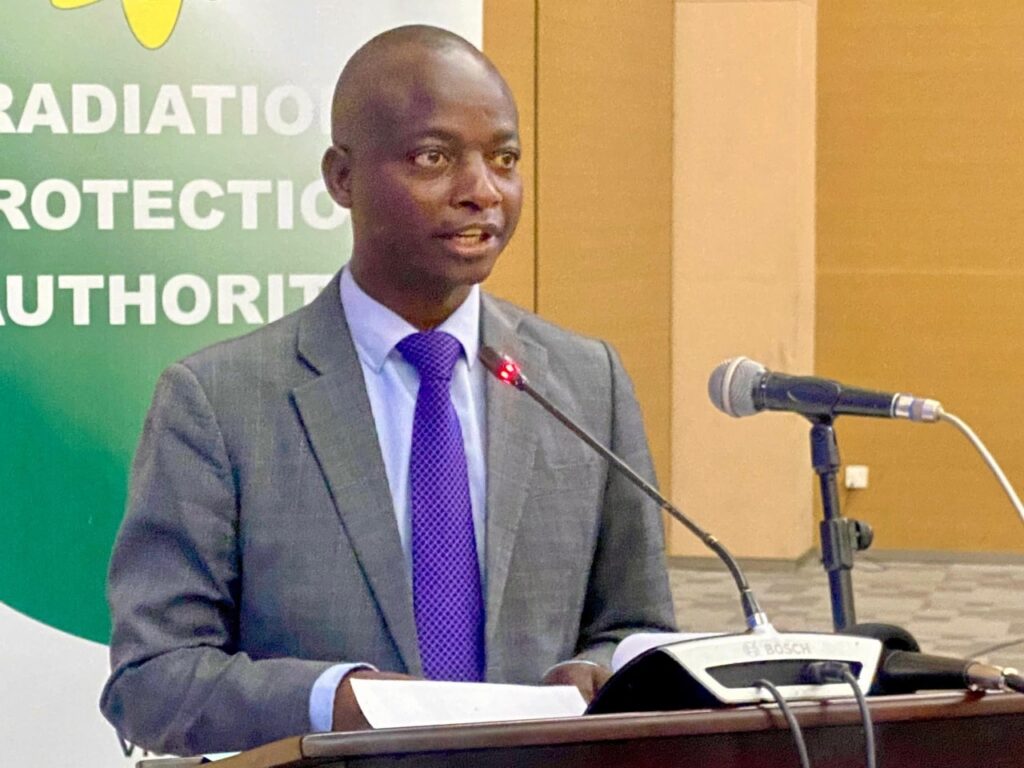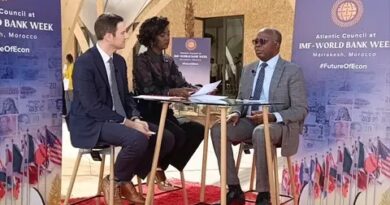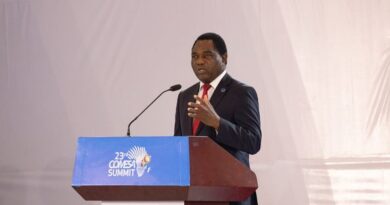Zambia Hosts First-Ever Indaba on Radioactivity Monitoring in Food and Water
The Permanent Secretary in the Ministry of Technology and Science, Eng. Dr. Brilliant Habeenzu, has officially opened the inaugural Awareness and Consultative Indaba on Monitoring Radioactivity in Water and Food Products at the Mulungushi International Conference Centre in Lusaka.
The meeting, organised by the Radiation Protection Authority (RPA), brought together senior government officials, regulators, and stakeholders from the food and agriculture sectors. In attendance were RPA Vice Chairperson, Mr. Msafiri Sinkala, and Director General, Mr. Boster Siwila.
Mr. Sinkala described the event as a milestone achievement, being the first national platform dedicated to radioactivity monitoring in food and water. He stressed the Authority’s commitment to institutionalising the Indaba as an annual forum for dialogue, knowledge exchange, and collaboration.
He emphasised the critical role of stakeholder participation—including food producers, transporters, sellers, and consumers—in ensuring certification and safety standards across the value chain.
Dr. Habeenzu highlighted the dual nature of nuclear science, noting its benefits in medicine, agriculture, energy, and industry, while underscoring the responsibility to protect citizens from ionising radiation.
He added that food safety is not only a health issue but also an economic imperative, contributing nearly 20% to Zambia’s GDP and sustaining over 70% of rural households.
He further warned of the long-term health risks posed by radioactive substances in food and water, stressing the need for continuous monitoring to protect lives and secure Zambia’s agricultural exports. Effective safety systems, he noted, are vital for boosting trade within SADC and COMESA.
The Permanent Secretary reaffirmed the Government’s commitment to investing in modern laboratories, skilled personnel, and strategic partnerships. He also pointed to youth training and capacity development as central to safeguarding future generations.
“Food and water are the essence of life. Maintaining rigorous monitoring systems is vital not only for our health but also for the prosperity of future generations,” Dr. Habeenzu said.
The Indaba is expected to strengthen Zambia’s radiation protection framework in line with regional and international best practices.



